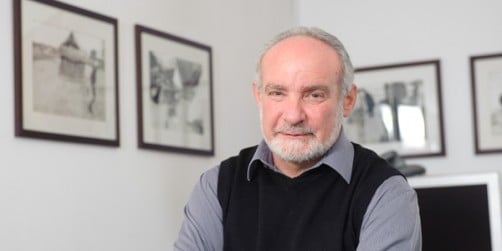BREAKING: A global task force on brain health has just been initiated to combat the rising dementia crisis in Africa. This urgent announcement comes as projections indicate that over 1 million people in South Africa alone will be living with dementia by 2050, highlighting an impending health emergency for the continent.
The announcement was made today by Professor Stephen Tollman, Director of the SAMRC/Wits Rural Health Transitions Unit, who has been appointed to the Africa Task Force on Brain Health by the Davos Alzheimer’s Collaborative. This initiative aims to address the rapid increase in neurodegenerative conditions as Africa’s population ages.
According to Nature Medicine, the task force has developed an ambitious five-year framework known as the 6×5 plan, designed to enhance Africa’s readiness to tackle these challenges. “Brain health runs through every stage of life and is critical for societal prosperity,” says Tollman. He emphasizes that integrating brain health into existing frameworks can protect aging citizens and bolster economies.
The urgency of this plan cannot be overstated. As Africa’s older population grows, the health systems are already under significant strain. The 6×5 plan outlines six immediate priorities, including:
1. Expanding brain health advocacy and literacy to challenge stigma.
2. Positioning brain health as a driver of socioeconomic transformation.
3. Utilizing existing resources for dementia detection and care.
4. Breaking down data silos for accurate policy-making.
5. Leveraging Africa’s mobile revolution to provide low-cost health solutions.
6. Securing sustainable funding to integrate brain health into universal health coverage.
Professor Tollman stresses that these initiatives are not just about older adults but also about fostering growth and development from a young age. “Cognitive decline is a cumulative product of health and social challenges throughout life,” he notes, underscoring the far-reaching impact of brain health on families and communities.
The SAMRC/Wits-Agincourt Research Unit, which has conducted extensive health surveillance for over three decades, is already documenting how people aged 40 and older navigate health challenges in resource-limited settings. Their HAALSI program is pioneering cognitive assessments to track dementia risk and progression, providing invaluable data to inform future policies and programs.
As conditions like hypertension, diabetes, and stroke rise in fast-transitioning areas like Agincourt-Bushbuckridge, the potential for dementia increases. The 6×5 plan offers a practical roadmap for addressing these interconnected health issues over the next five years.
NOW is the time for action. With the right coordination and commitment, Africa can transform its aging population from a vulnerability into a source of resilience. The Davos Alzheimer’s Collaborative indicates that Africa has the necessary evidence, infrastructure, and partnerships to lead the world in innovative, community-driven approaches to brain health.
As this initiative unfolds, experts and communities across the continent will be watching closely. The immediate focus will be on mobilizing resources and advocacy to ensure that brain health becomes a priority for governments and health organizations alike.
Stay tuned for updates as this critical task force sets out to reshape the future of brain health in Africa.







